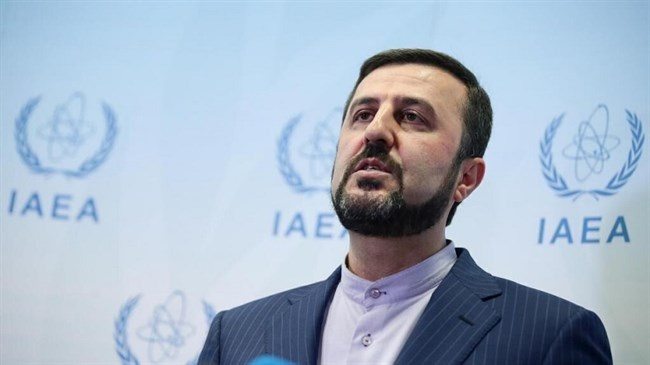Iran: IAEA in no position to assess Iran’s decisions

The International Atomic Energy Agency (IAEA) is only tasked with monitoring and verifying nuclear-related issues under the Iran nuclear agreement, Iran’s ambassador to Vienna-based international organizations said, noting that analysis and assessment is outside the purview of the UN agency.
“@iaeaorg sole role is to monitor and verify the voluntary nuclear-related measures as detailed in the JCPOA and to provide regular updates in this regard,” Kazem Gharibabadi said in a post on his Twitter account on Friday.
“Any assessment or analysis is out of the mandate of the Agency,” the Iranian diplomat added, according to Tasnim News Agency
His comments came after IAEA Director General Rafael Grossi told Sky News that Iran should not follow through on threats to increase uranium enrichment and throw out his inspectors.
“If implemented,” Grossi said, “these measures would be an even further deviation from the commitments that Iran entered into when it joined the agreement.”
“I cannot imagine who would win from such a situation. If there was any limitation of the IAEA inspectors as a result of this or any other situation were curtailed in their work,” he added.
The UN nuclear chief was referring to a recent bill that the Iranian lawmakers passed on strategic action for lifting of the sanctions.
Early in December, Iranian lawmakers voted ‘yes’ to the outlines of the draft bill, which will require the Iranian administration to suspend more commitments under the multilateral nuclear deal, officially known as the Joint Comprehensive Plan of Action (JCPOA), Press TV wrote.
The plan, among other things, requires the Atomic Energy Organization of Iran (AEOI) to produce at least 120kg of 20% enriched uranium annually and store it inside the country within two months after the adoption of the law.
It also urges the AEOI to start the installation, gas injection, enrichment and storage of nuclear materials up to an appropriate enrichment degree within a period of three months using at least 1,000 IR-2m centrifuges.
Iran showed the world the peaceful nature of its nuclear program by signing the JCPOA with six world states in 2015. The nuclear deal was also ratified in the form of a UN Security Council Resolution 2231.
However, Washington’s exit in May 2018 and the subsequent reimposition of unilateral sanctions against Tehran left the future of the historic agreement in limbo.
Tehran remained fully compliant with the JCPOA for an entire year, waiting for the co-signatories to fulfill their end of the bargain by offsetting the impacts of Washington’s bans on the Iranian economy.
As the European parties failed to do so, Tehran moved in May 2019 to suspend its JCPOA commitments under Articles 26 and 36 of the agreement covering Tehran’s legal rights.
Source: Iran Daily

